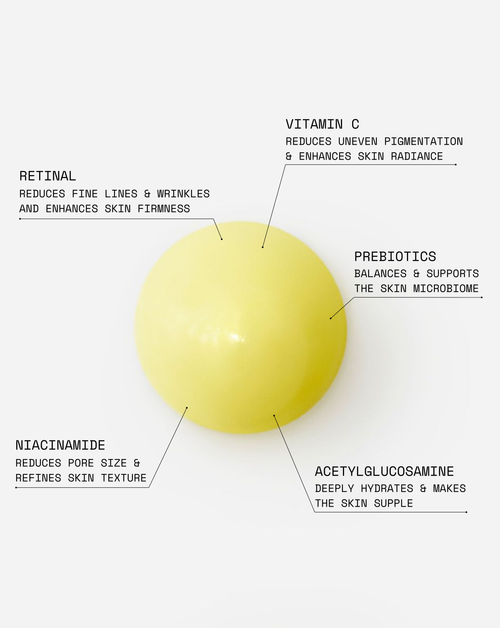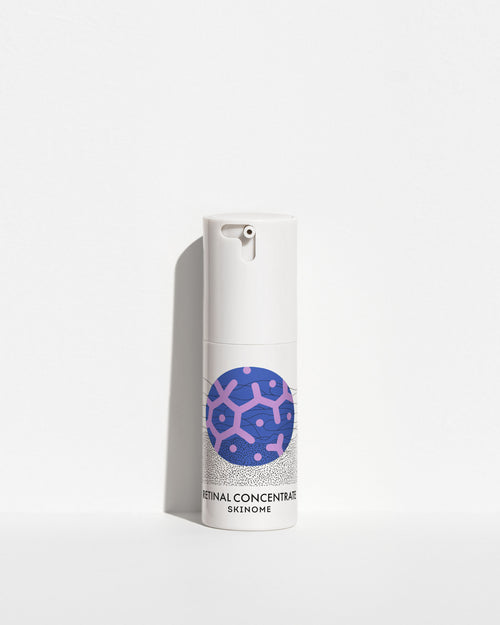2. Cleanse your skin – but only in the evening!
The basic idea behind cleansing the skin is that it has accumulated particles from the city air, dirt, grease and other unhealthy substances, which need to be removed from the skin. This is important, but today many people over-cleanse their skin and scientific studies show that there is a link between too much cleansing and some of the most widespread skin problems such as dry and sensitive skin or even rosacea.
During the night, the skin forms unique moisture-binding substances that are part of the skin barrier and contribute to soft and healthy skin. Surfactants that you find in many cleansing products tend to negatively affect the skin barrier because they can also dissolve the skin's own oils that are formed in the skin. Therefore, an important piece of advice to avoid dry and sensitive skin is to only cleanse in the evening.
Skinome has two cleansers, Mineral Cleanser and Five Point Cleanser , both of which cleanse gently but effectively and have a moisturizing effect. They contain very mild surfactants, skin-derived oils, as well as pre- and postbiotics.
3. Soften and moisturize with skin-like ingredients
So-called skin-like ingredients are substances that are naturally found in the skin and that the skin is therefore used to. These ingredients work with the skin and support the skin's natural function. The skin has evolved over more than 300,000 years and is a super-competent system that we should preferably disturb as little as possible. Skin-like humectants and emollients are undoubtedly the most important ingredients for dry and sensitive skin.
Emollients: Skin-like emollients include ceramides, squalane, lecithin and cholesterol. These are all found in the skin's own beneficial mixture of oils and water which, together with humectants, are so important for healthy and strong skin.
Humectants: To help the skin retain moisture, we can help by adding ingredients that bind water to the skin. Glycerin, urea and PCA are also naturally found in the skin where they bind water in the top layer and hydrate the skin.
When developing Skinome's products, we place great emphasis on using skin-like ingredients such as the emollients and moisture-binding substances recommended above, which are suitable for dry and sensitive skin. In our new Intense Emulsion moisturizer , which is developed to care for and build up sensitive and also dry to very dry skin, we also use the sugar erythritol, which together with urea and PCA increases the skin's moisture content.












